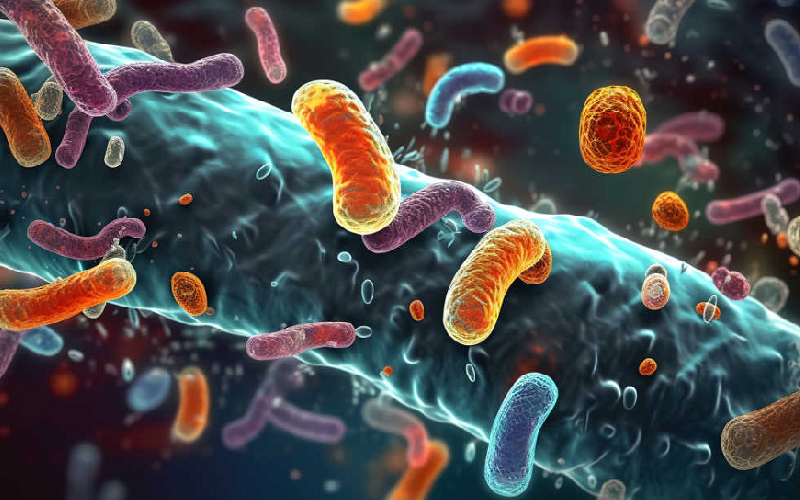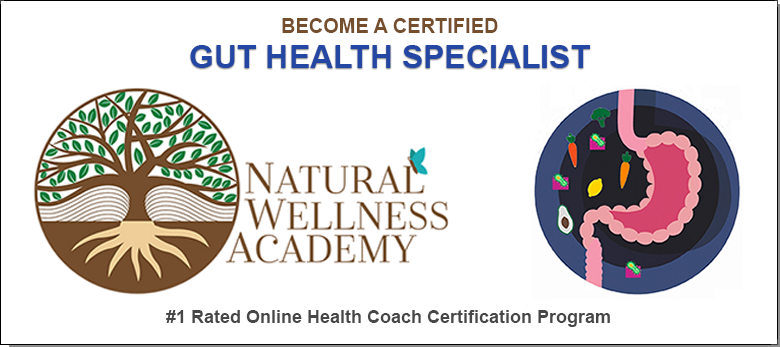The human body is home to a complex community of trillions of microorganisms known as the microbiome. These tiny inhabitants, primarily located in our gut, play a crucial role in our overall health. From aiding digestion to boosting immunity, the microbiome’s influence extends far beyond the digestive system. Here we explore how a healthy gut can enhance your well-being, shedding light on the profound connection between gut health and various aspects of physical and mental health.
Understanding the Microbiome
The microbiome, a vast community of microorganisms residing primarily in our gut, is integral to our health. These microorganisms, including bacteria, viruses, fungi, and other microbes, work in harmony to support various bodily functions. Understanding the microbiome’s role and the factors that affect its composition can provide insight into how we can enhance our well-being through gut health.
What Is The Microbiome?
The microbiome consists of a diverse array of microorganisms, each playing a unique role in maintaining health. This section explores the composition of the microbiome and its essential functions.
Composition and Diversity of Gut Bacteria
The human gut is home to trillions of bacteria, representing thousands of species. These bacteria can be broadly categorized into beneficial and harmful types. Beneficial bacteria aid in digestion, produce vitamins, and protect against pathogens. The diversity of these microorganisms is crucial, as a varied microbiome is associated with better health outcomes. An imbalance, where harmful bacteria outnumber beneficial ones, can lead to various health issues.
Role in Digestion and Nutrient Absorption
Gut bacteria are essential for breaking down complex carbohydrates, fibers, and proteins into simpler compounds that our bodies can absorb and use. They produce enzymes that our bodies cannot, enabling the digestion of certain foods. This process not only aids in nutrient absorption but also produces beneficial compounds like short-chain fatty acids, which support gut health and have anti-inflammatory properties.
Factors Affecting the Microbiome
Several factors influence the composition and health of the microbiome. Understanding these factors can help us make informed choices to support a balanced gut microbiome.
Diet
Diet is one of the most significant determinants of microbiome composition. A diet rich in diverse, fiber-filled plant foods supports a healthy microbiome. On the other hand, high-fat, high-sugar diets can disrupt the balance, leading to a decrease in beneficial bacteria. Fermented foods like yogurt, kefir, and sauerkraut introduce probiotics, which can enhance microbial diversity and function.
Antibiotics and Medications
Antibiotics, while essential for treating bacterial infections, can have a profound impact on the microbiome. They often kill beneficial bacteria along with harmful ones, leading to a less diverse microbiome. Other medications, such as nonsteroidal anti-inflammatory drugs (NSAIDs) and proton pump inhibitors (PPIs), can also affect gut health. It is important to use these medications judiciously and consider probiotics during and after antibiotic treatment to help restore balance [1].
Lifestyle and Environment
Lifestyle choices and environmental factors also play a role in shaping the microbiome. Stress, lack of sleep, and sedentary behavior can negatively impact gut health. Regular physical activity, stress management techniques, and adequate sleep contribute to a healthier microbiome. Environmental exposures, such as pollution and hygiene practices, also influence the diversity and composition of gut bacteria. Embracing a lifestyle that supports overall health will, in turn, support a healthy microbiome.
The Gut-Brain Axis
The gut-brain axis is a complex communication network that links the emotional and cognitive centers of the brain with peripheral intestinal functions. This bidirectional communication pathway highlights the significant impact that gut health can have on mental well-being and cognitive function. Exploring this connection helps us understand the profound effects of gut bacteria on our mood and brain function.
Connection Between Gut Health and Mental Health
The gut and brain are connected through various pathways, including the vagus nerve, immune system, and neurotransmitter signaling. This connection underscores the influence of gut health on our mental state and emotional well-being.
Impact of Gut Bacteria on Mood and Cognitive Function
Gut bacteria produce neurotransmitters such as serotonin, dopamine, and gamma-aminobutyric acid (GABA), which play key roles in regulating mood, anxiety, and cognitive function. An imbalance in gut bacteria can lead to disruptions in these neurotransmitter levels, affecting mental health [2].
Serotonin Production
Approximately 90% of the body’s serotonin, a neurotransmitter that contributes to feelings of happiness and well-being, is produced in the gut. Healthy gut bacteria are essential for the production and regulation of serotonin. When the gut microbiome is imbalanced, serotonin levels can be affected, leading to mood disorders such as depression and anxiety.
Dopamine and GABA
Dopamine and GABA are other critical neurotransmitters influenced by the gut microbiome. Dopamine is involved in reward and pleasure mechanisms, while GABA has a calming effect on the nervous system. Disruptions in gut health can lead to imbalances in these neurotransmitters, impacting cognitive functions and emotional stability.
Case Studies and Scientific Evidence
Numerous studies and clinical trials have explored the gut-brain connection, providing evidence of the microbiome’s influence on mental health. These studies highlight the potential of probiotics and dietary interventions in managing mental health conditions.
Probiotics and Mood Disorders
Research has shown that certain strains of probiotics can help alleviate symptoms of anxiety and depression. For instance, Lactobacillus and Bifidobacterium strains have been found to produce beneficial effects on mood and cognitive function, suggesting that probiotics can be an effective supplement for mental health support.
Dietary Interventions
Diet plays a crucial role in shaping the gut microbiome and, consequently, mental health. Studies have indicated that a diet rich in fiber, omega-3 fatty acids, and fermented foods can positively influence gut bacteria and improve mood and cognitive function. Conversely, diets high in sugar and processed foods can negatively impact the microbiome and mental well-being.

Enhancing Well-being Through Gut Health
Optimizing gut health can have a profound impact on overall well-being. By focusing on diet, lifestyle changes, and appropriate supplementation, we can nurture our microbiome and promote better health.
Diet and Nutrition
The food we eat plays a significant role in shaping the gut microbiome. Making mindful dietary choices can help foster a healthy and diverse microbial community in the gut.
Prebiotics and Probiotics
Prebiotics are non-digestible fibers that feed beneficial gut bacteria, while probiotics are live beneficial bacteria that can be introduced into the gut through certain foods and supplements. Foods rich in prebiotics include garlic, onions, leeks, asparagus, and bananas. Probiotic-rich foods include yogurt, kefir, sauerkraut, kimchi, and other fermented foods. Incorporating these foods into your diet can support a balanced and diverse microbiome [3].
Fiber-Rich Foods
Fiber is essential for a healthy gut. It helps to keep the digestive system running smoothly and provides nourishment for beneficial bacteria. Foods high in fiber include fruits, vegetables, whole grains, legumes, nuts, and seeds. A diet high in fiber can promote the growth of beneficial bacteria and improve overall gut health.
Fermented Foods
Fermented foods contain live cultures of beneficial bacteria. Regular consumption of fermented foods like miso, tempeh, kombucha, and pickles can introduce beneficial bacteria into the gut, enhancing microbial diversity and overall gut health.
Lifestyle Changes
In addition to dietary adjustments, certain lifestyle changes can positively influence gut health.
Stress Management Techniques
Chronic stress can negatively impact the gut microbiome. Stress management techniques such as meditation, yoga, deep breathing exercises, and mindfulness can help reduce stress levels and support a healthy gut. Finding effective ways to manage stress is crucial for maintaining gut health.
Physical Activity
Regular physical activity has been shown to promote a healthy gut microbiome. Exercise can increase the diversity of gut bacteria and improve digestive health. Aim for at least 30 minutes of moderate exercise most days of the week to support gut health.
Sleep Hygiene
Quality sleep is essential for overall health, including gut health. Poor sleep can disrupt the balance of gut bacteria and negatively affect digestion. Establishing a regular sleep routine, creating a restful environment, and avoiding screens before bedtime can improve sleep quality and support a healthy gut.
Supplementation
In some cases, dietary supplements can provide additional support for gut health.
Benefits of Probiotic Supplements
Probiotic supplements can be beneficial, especially after antibiotic treatment or during periods of digestive distress. They can help restore the balance of gut bacteria and support overall digestive health. When choosing a probiotic supplement, look for one that contains a variety of strains and a high CFU (colony-forming unit) count.
Choosing the Right Supplement
Not all probiotic supplements are created equal. It is important to choose a supplement that is backed by research and tailored to your specific health needs. Consulting with a healthcare professional can help you select the right probiotic supplement for your individual requirements.
Common Gut Health Issues and Solutions
Gut health issues are common and can significantly impact overall well-being. Understanding these issues and their solutions can help maintain a healthy gut.
Dysbiosis
Dysbiosis refers to an imbalance in the gut microbiome, where harmful bacteria outnumber beneficial ones. This imbalance can lead to various digestive and systemic health issues.
Causes and Symptoms
Dysbiosis can be caused by several factors, including poor diet, antibiotic use, stress, and lack of sleep. Symptoms of dysbiosis include bloating, gas, diarrhea, constipation, and fatigue. It can also contribute to conditions such as irritable bowel syndrome (IBS) and inflammatory bowel disease (IBD) [4].
Treatment Options
Treatment for dysbiosis involves restoring the balance of gut bacteria. This can be achieved through dietary changes, such as increasing fiber intake and consuming fermented foods rich in probiotics. Probiotic supplements can also help reintroduce beneficial bacteria. Reducing stress, getting adequate sleep, and avoiding unnecessary antibiotic use are also important for maintaining a healthy balance in the gut microbiome.
Irritable Bowel Syndrome (IBS)
IBS is a common digestive disorder that affects the large intestine, causing discomfort and changes in bowel habits.
Overview and Symptoms
IBS symptoms include abdominal pain, bloating, gas, diarrhea, and constipation. The exact cause of IBS is unknown, but it is believed to be related to a combination of factors, including gut-brain axis dysfunction, microbial imbalance, and hypersensitivity of the intestinal lining.
Management Strategies
Managing IBS typically involves dietary and lifestyle modifications. Following a low FODMAP diet, which restricts certain fermentable carbohydrates, can help reduce symptoms. Stress management techniques, such as mindfulness and yoga, can also be beneficial. Regular exercise, adequate hydration, and avoiding trigger foods are important for managing IBS. In some cases, medications or probiotics may be recommended by healthcare providers.
Inflammatory Bowel Disease (IBD)
IBD encompasses chronic inflammatory conditions of the gastrointestinal tract, including Crohn’s disease and ulcerative colitis.
Types and Symptoms
Crohn’s disease can affect any part of the gastrointestinal tract, while ulcerative colitis is limited to the colon and rectum. Symptoms of IBD include persistent diarrhea, abdominal pain, weight loss, and fatigue. The exact cause of IBD is unknown, but it involves an abnormal immune response that leads to chronic inflammation.
Treatment Approaches
Treatment for IBD aims to reduce inflammation, manage symptoms, and achieve and maintain remission. This often involves a combination of medication, dietary changes, and sometimes surgery. Anti-inflammatory drugs, immune system suppressors, and biologics are commonly used medications. A diet low in processed foods and high in anti-inflammatory nutrients can also support gut health. Working closely with healthcare providers is essential for managing IBD effectively.
References
[1] Gut Microbiome
[2] The Human Gut Microbiome in Health and Disease
[3] The Microbiome
[4] 10 Ways to Strengthen Your Microbiome


